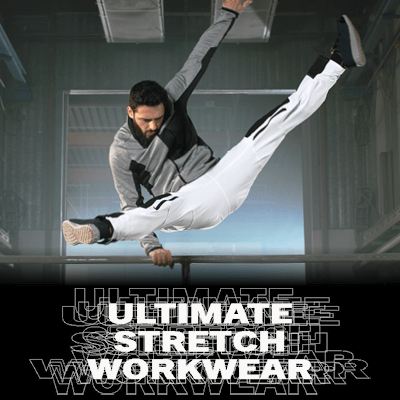Protect yourself from the sun's harmful rays
Outdoor work takes place in all weathers – rain, wind and hot sun. In cold or rainy weather, you will often pull on clothing that protects you from the elements - but what about when the sun is out? Here it is important to dress correctly and protect your skin from the sun's harmful UV rays.
Do you have workwear for the sunny summer months? Wear workwear that protects you from the sun when you work outside. This allows you to care for your skin and reduces the risk of skin disease. The sun's UV rays can damage your skin if you stay in the sun without sun protection. It is therefore essential that your workwear protects your skin from the sun.
Fabric provides a certain level of protection against the sun's harmful rays. But the degree of protection against the sun can vary. A fabric's resistance to UV rays depends on factors such as:
- The fabric's density
- Thickness
- The fibres in the fabric
- The colour
- The elasticity
- Any finishes on the fabric
Resistance to the sun's rays is also affected by whether the product is wet, washed etc. On warm days or when your work is particularly physical, it is therefore important that you change your top if it becomes damp or sweaty so that you retain optimum protection. It is equally important that you regularly change your workwear when it becomes worn so that your UV protection remains intact.
To care for the clothing's UV protective properties it is also important to follow the clothing's wash and care instructions.
Need documented protection against the sun's rays?
MASCOT has chosen to certify a selection of products from the SAFE ranges with EN 13758-2 (protective properties against UV rays), as this clothing is often used outdoors in all weathers. MASCOTs selection of EN 13758-2-certified products includes tops such as T-shirts, long-sleeved T-shirts and sweatshirts. These are light products that you can use as a primary layer when the sun is out and the UV-rays are at their strongest.
Check out MASCOT's products certified with EN 13758-2
In order to attain the EN 13758-2 certification, an ultraviolet protection factor (UPF-value) of at least 50 must be achieved during testing, a level that must as a minimum be retained - and documented during regular re-certification - in order to retain the certification. If this is achieved, the manufacturer can mark their product with 'UPF 40+'. A UPF 40+ guarantees the user a UV-block of at least 97.5%. This means that less than 2.5% of the sun's harmful UV rays penetrate the fabric.
No hocus pocus
A thick layer of sunscreen on your skin protects better than a thin layer of sunscreen after several dips in the pool. The same applies to fabrics: a thick, dense fabric provides better protection than a thin, airy T-shirt. So when you are exposed to the sun's rays while you work, be mindful of the thin fabric types, which are unlikely to provide sufficient protection.





















